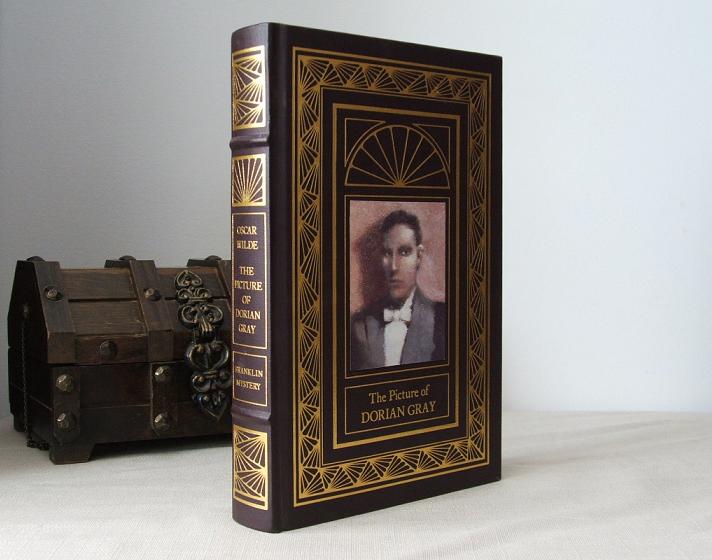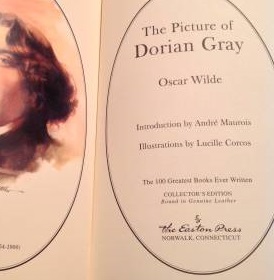Easton Press Oscar Wilde books
The Short Stories of Oscar Wilde - 100 Greatest Books Ever Written - 1976
Franklin Library Oscar Wilde books
Stories and Fairy Tales of Oscar Wilde - Collected Stories of the World's Greatest Writers - 1983
The Picture of Dorian Gray - Library of Mystery Masterpieces - 1988
Writer Oscar Wilde
Oscar Fingal O'Flahertie Wills Wilde, often referred to simply as Oscar Wilde, was a flamboyant Irish playwright, novelist, essayist, and poet, whose wit, charm, and eccentricities left an indelible mark on the cultural landscape of the late 19th century. Born on October 16, 1854, in Dublin, Ireland, Wilde was the second of three children born to Sir William Wilde, a renowned eye and ear surgeon, and Jane Wilde, a poet and nationalist. From a young age, Wilde exhibited an extraordinary intellect and a penchant for creativity. He attended Trinity College, Dublin, where he excelled in his studies and distinguished himself as a brilliant scholar. After graduating, Wilde moved to Oxford, where he continued his education at Magdalen College, gaining a reputation for his sharp wit and flamboyant personality.
Upon completing his studies at Oxford, Wilde embarked on a literary career in London. His early works, including poems and essays, garnered attention for their wit and originality. However, it was his comedic plays, such as Lady Windermere's Fan, An Ideal Husband, and perhaps most famously, The Importance of Being Earnest, that solidified his reputation as one of the leading playwrights of his time. Characterized by clever dialogue, social satire, and a keen insight into human nature, Wilde's plays remain celebrated for their enduring appeal and timeless wit.
Beyond his literary accomplishments, Wilde became known for his flamboyant persona and his role as a prominent figure in London's social scene. With his trademark wit and flamboyance, he captivated audiences wherever he went, earning admirers and detractors in equal measure. His aestheticism, which emphasized the pursuit of beauty and pleasure, found expression not only in his writing but also in his personal style and mannerisms, making him a figure of fascination and controversy. However, Wilde's life took a dramatic turn when his intimate relationship with Lord Alfred Douglas, known as "Bosie," led to his public downfall. In 1895, Wilde was arrested and charged with gross indecency for his homosexual liaisons, a crime punishable by imprisonment in Victorian England. Despite his attempts to defend himself during the sensational trial that followed, Wilde was ultimately convicted and sentenced to two years of hard labor.
Following his release from prison, Wilde lived out his remaining years in exile, largely impoverished and in ill health. Despite his hardships, he continued to write, producing works such as The Ballad of Reading Gaol, a poignant reflection on his experiences in prison. Tragically, Wilde's health continued to deteriorate, and he died on November 30, 1900, at the age of 46, in Paris, France. Though his life was marked by scandal and adversity, Oscar Wilde's legacy endures as a testament to his unparalleled wit, creativity, and defiance of societal norms. His works continue to be celebrated for their timeless insights into human nature, while his enduring influence on literature and culture ensures that he remains a figure of enduring fascination and admiration.


Comments
Post a Comment
Share your best book review and recommendation